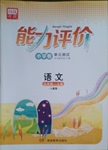题目内容
| |||||||||||||||||||||||||||||||||||||||||||||||||||||||||||||||||||||||||||||||||||||||||||||||||||||||||||||||||||||||||||||||||||||||||||||||||||||||||||||||||||||||||||||||||||||||||||||||||||||||||||||||||||||||||||||||||||||||||||||||||||||||||||||||||||||||||||||||||||||||||||
解析:
(1) |
下一句提到作者的眼皮越来越沉,由此可知作者在晚上在大部分时间都是在“熬夜”与朋友嬉笑、交谈。stay up表“熬夜”。 |
(2) |
作者由于昨晚熬夜,在第二天的第一节“课”前就打瞌睡。 |
(3) |
作者难以睁开双眼,头不由自主地垂到了课桌上,把教材当成限“枕头”。 |
(4) |
作者认为上课前小睡几分钟不会“产生不良影响”。 |
(5) |
作者正在小睡,突然被一种声音惊醒,“心跳”加速,所以环顾四周,想搞清楚是怎么回事儿。 |
(6) |
根据本段开关提到的响声可知作者想找到“噪音”的起因。 |
(7) |
上一句中提到这位年轻的教授正用孩子般的微笑看着作者,由此可知他是“有意”把携带的教科书重重地放在讲桌上的。deliberately“故意地”。 |
(8) |
他仍然“微笑”着问候学生。此处与上文的“…with a boyish smile…”相呼应。 |
(9) |
上文提到作者在昏睡中被教授故意制造的噪音惊醒,由此可知此处表示教授看到每个人都“清醒”后感到非常高兴,然后开始上课。 |
(10) |
在随后的一小时中,作者不再困倦,但这并不是教授的教科书把作者“惊”醒的。此处shock是名词,表示“震惊”。上文提到的是作者从“噪音”中惊醒,所以A项不恰当。 |
(11) |
下文提到他知识渊博,富有感染力,由此可知他引入的讨论非常“吸引人”。fastinating“极有吸引力的”。 |
(13) |
他用渊博的知识和幽默让材料“生动”起来,come alive“变得兴味盎然,生动起来”。A项表示“奇怪的”,B项表示“自然的”,C项表示“方便的”,均不符合语境。 |
(14) |
他用热情和快乐“授课”的方式富有感染力。that he taught with是定语从句,修饰先行词the enthusiasm and joy。 |
(15) |
在这一个小时中,作者完全沉浸在教授的讲课中,所以“离开”教室时无比清醒。 |
(16) |
受到博学多才的教授的感染,作者离开教室时不但非常清醒,而且“聪明”了一些,并且感觉好多了。A项与本句前半部分中的内容重复,故可排除。 |
(17) |
上文提到作者在上课前睡着了,后来被教授以独特的方式惊醒,而且深受感染,由此可知作者学到的东西远比在课堂上不要“睡觉”重要得多。教授用热情和快乐感染了学生,所以作者感悟到的是“快乐地”把想要做的事情做好。下一句中的joyously也是线索提示。 |
(18) |
教授用热情和快乐感染了学生,所以作者感悟到的是“快乐地”把想要做的事情做好。下一句中的joyously也是线索提示。 |
(19) |
结合本段第二句中的“…going to do something in this life…”以及本段最后一句的开头部分可知作者所要强调的是不要在“人生”中梦游。 |
(20) |
此处作者感叹人生“短暂”。其余选项都不符合语境。 |

 能力评价系列答案
能力评价系列答案 唐印文化课时测评系列答案
唐印文化课时测评系列答案完型填空
To be a good teacher, you need some of the gifts of a good actor, you must be able to 1 the attention and interest of your students, you must be a 2 speaker, with a good, strong, 3 voice which is fully under your control; and you must be able to 4 what you are teaching, in order to make its meaning clear.
5 a good teacher, and you will see that he does not sit still 6 his class: he stands the whole time he is teaching; he walks about, using his 7 , hands and fingers to help him in his explanation, and his face to express feeling. Listen to him, and you will 8 the loudness, the quality and the musical note of his voice always changing according to what he is 9 about. The fact that a good teacher has some of the gifts of a good actor doesn’t 10 that he will indeed be able to act 11 on the stage, for there are very important 12 between the teacher’s work and the actor’s. The actor has to speak words which he has learnt by heart; he has to repeat exactly the 13 words each time he plays a certain part, 14 his movements and the way in which he uses his voice are usually 15 before hand. What he has to do is to make all these carefully learnt words and actions seem 16 on the stage.
A good teacher 17 in quite a different way. His students take an active part in his 18 :they ask and answer questions, they obey orders, and if they don’t obey something, they will say no. The teacher therefore has to suit his act to the needs of the students. He cannot learn his part by heart, but must 19 it as he goes along.
I have known many teachers who were fine 20 in class but unable to take part in a stage play because their brains wouldn’t keep discipline(规定): they could not keep strictly to what another had written.
|
(1)A.pay |
B.hold |
C.give |
D.know |
|
(2)A.clear |
B.slow |
C.quick |
D.loud |
|
(3)A.frightening |
B.fearing |
C.exciting |
D.pleasing |
|
(4)A.act |
B.talk |
C.say |
D.repeat |
|
(5)A.Listen |
B.Look |
C.Watch |
D.Observe |
|
(6)A.for |
B.before |
C.behind |
D.with |
|
(7)A.tongue |
B.words |
C.legs |
D.arms |
|
(8)A.hear |
B.see |
C.think |
D.guess |
|
(9)A.talking |
B.thinking |
C.hearing |
D.listening |
|
(10)A.tell |
B.express |
C.show |
D.mean |
|
(11)A.seriously |
B.badly |
C.well |
D.actively |
|
(12)A.things |
B.differences |
C.points |
D.jobs |
|
(13)A.different |
B.same |
C.above |
D.following |
|
(14)A.just |
B.never |
C.ever |
D.even |
|
(15)A.read |
B.known |
C.fixed |
D.written |
|
(16)A.natural |
B.real |
C.true |
D.clear |
|
(17)A.is |
B.works |
C.has |
D.teaches |
|
(18)A.group |
B.party |
C.class |
D.play |
|
(19)A.invent |
B.discover |
C.teach |
D.continue |
|
(20)A.speakers |
B.watchers |
C.actors |
D.listeners |
完型填空
To be a good teacher, you need some of the gifts of a good actor, you must be able to 1 the attention and interest of your students, you must be a 2 speaker, with a good, strong, 3 voice which is fully under your control; and you must be able to 4 what you are teaching, in order to make its meaning clear.
5 a good teacher, and you will see that he does not sit still 6 his class: he stands the whole time he is teaching; he walks about, using his 7 , hands and fingers to help him in his explanation, and his face to express feeling. Listen to him, and you will 8 the loudness, the quality and the musical note of his voice always changing according to what he is 9 about. The fact that a good teacher has some of the gifts of a good actor doesn’t 10 that he will indeed be able to act 11 on the stage, for there are very important 12 between the teacher’s work and the actor’s. The actor has to speak words which he has learnt by heart; he has to repeat exactly the 13 words each time he plays a certain part, 14 his movements and the way in which he uses his voice are usually 15 before hand. What he has to do is to make all these carefully learnt words and actions seem 16 on the stage.
A good teacher 17 in quite a different way. His students take an active part in his 18 :they ask and answer questions, they obey orders, and if they don’t obey something, they will say no. The teacher therefore has to suit his act to the needs of the students. He cannot learn his part by heart, but must 19 it as he goes along.
I have known many teachers who were fine 20 in class but unable to take part in a stage play because their brains wouldn’t keep discipline(规定): they could not keep strictly to what another had written.
|
(1)A.pay |
B.hold |
C.give |
D.know |
|
(2)A.clear |
B.slow |
C.quick |
D.loud |
|
(3)A.frightening |
B.fearing |
C.exciting |
D.pleasing |
|
(4)A.act |
B.talk |
C.say |
D.repeat |
|
(5)A.Listen |
B.Look |
C.Watch |
D.Observe |
|
(6)A.for |
B.before |
C.behind |
D.with |
|
(7)A.tongue |
B.words |
C.legs |
D.arms |
|
(8)A.hear |
B.see |
C.think |
D.guess |
|
(9)A.talking |
B.thinking |
C.hearing |
D.listening |
|
(10)A.tell |
B.express |
C.show |
D.mean |
|
(11)A.seriously |
B.badly |
C.well |
D.actively |
|
(12)A.things |
B.differences |
C.points |
D.jobs |
|
(13)A.different |
B.same |
C.above |
D.following |
|
(14)A.just |
B.never |
C.ever |
D.even |
|
(15)A.read |
B.known |
C.fixed |
D.written |
|
(16)A.natural |
B.real |
C.true |
D.clear |
|
(17)A.is |
B.works |
C.has |
D.teaches |
|
(18)A.group |
B.party |
C.class |
D.play |
|
(19)A.invent |
B.discover |
C.teach |
D.continue |
|
(20)A.speakers |
B.watchers |
C.actors |
D.listeners |
完型填空
From Monday till Friday most people are busy__1__or studying, __2__in the evenings and on weekends they___3___enjoy ___4___. Some watch TV or go to movies; others engage in sports. It ___5___ individual(个人的)interests. ___6___ many different ways to spend our spare time.
Almost everyone has some kind of hobby. It may be anything ___7___collecting stamps___8___model airplanes. Some hobbies are very expensive, but others___9___anything at all. Some collections are worth a lot of money, others are ___10___only to___11___.
I know a man who has a coin___12___worth seven thousand dollars. A short time ago he bought a rare fifty-cent piece worth 250 dollars! He was very happy about that and thought the price was___13___. On the other hand, my younger brother collects match boxes. He has almost 600 of them but I___14___if they are worth any money. However, to my brother they are extremely___15___ ___16___makes him happier than to find a new match box for his collection.
That's___17___a hobby means, I guess. It is something we like to do in our spare time simply___18___of it.___ 19___in dollars is not important but the pleasure it___20___us is important.
|
(1)A.with working |
B.working |
|
C.At working |
D.with work |
|
(2)A.but |
B.however |
|
C.when |
D.and |
|
(3)A.like |
B.consider |
|
C.are thought to |
D.are free to |
|
(4)A.it |
B.sports |
|
C.themselves |
D.lives |
|
(5)A.depends on |
B.is of |
|
C.decides |
D.depends |
|
(6)A.Everyone has |
B.There has |
|
C.There are |
D.People invent |
|
(7)A.for example |
B.such as |
|
C.from |
D.like |
|
(8)A.to making |
B.and make |
|
C.to make |
D.besides making |
|
(9)A.are not |
B.are not worthy |
|
C.don't cost |
D.aren't cost |
|
(10)A.important |
B.expensive |
|
C.good |
D.valuable |
|
(11)A.their own |
B.their owners |
|
C.themselves |
D.young |
|
(12)A.which |
B.collecting |
|
C.collected |
D.collection |
|
(13)A.expensive |
B.low |
|
C.cheap |
D.reasonable |
|
(14)A.am sure |
B.doubt |
|
C.think |
D.believe |
|
(15)A.valuable |
B.expensive |
|
C.important |
D.cheap |
|
(16)A.It |
B.What |
|
C.Nothing |
D.Everything |
|
(17)A.how |
B.what |
|
C.why |
D.called |
|
(18)A.to Enjoy |
B.for pleasure |
|
C.for the fun |
D.to please ourselves |
|
(19)A.The value |
B.The money |
|
C.The expenses |
D.The cost |
|
(20)A.that gives |
B.gives |
|
C.giving |
D.is given |
| |||||||||||||||||||||||||||||||||||||||||||||||||||||||||||||||||||||||||||||||||||||||||||||||||||||||||||||||||||||||||||||||||||||||||||||||||||||||||||||||||||||||||||||||||||||||||||||||||||||||||||||||||||||||||||||||||||||||||||||||||||||||||||||||||||||||||||||||||||||||||||
| |||||||||||||||||||||||||||||||||||||||||||||||||||||||||||||||||||||||||||||||||||||||||||||||||||||||||||||||||||||||||||||||||||||||||||||||||||||||||||||||||||||||||||||||||||||||||||||||||||||||||||||||||||||||||||||||||||||||||||||||||||||||||||||||||||||||||||||||||||||||||||